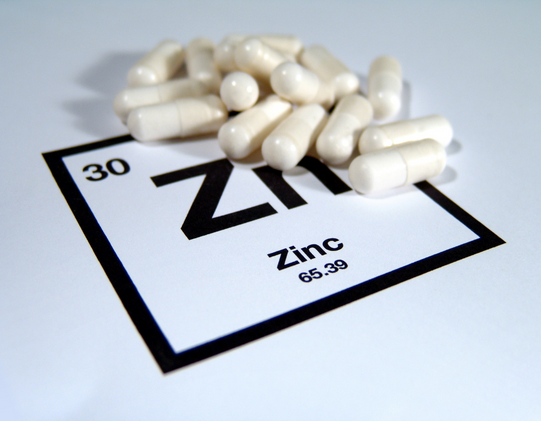
How To Optimize Vitamin and Mineral Absorption
December 5, 2023
10 Signs That You Are Burning Fat
December 15, 2023
Here’s the truth about the often-forgotten mineral zinc…
It should be a must-have in your supplement stack but if you’re like most people, you don’t think about zinc very often. You might know it’s important for your immune system or that oysters are high in this mineral, but for some people, that’s pretty much it.
While it’s essential to good health and plays a crucial role in over 300 metabolic processes, it is only needed in small quantities.
Since it’s so important, why don’t we hear more about this essential nutrient? Let’s take a deep dive!
What is Zinc?
Zinc is an essential mineral that plays a role in many bodily functions. One of the main things it does is help your immune system work properly. It’s an essential component of many proteins involved in the immune system, such as certain cytokines (signaling molecules) and white blood cells. Also, it plays an important role in the production of T cells and B cells, which help your body fight infections by recognizing foreign invaders like bacteria or viruses.
It helps regulate the production of cytokines, which are small proteins that play a key role in activating your immune system so it can respond appropriately to potential threats to your health. It supports normal growth and development during pregnancy and childhood, helps maintain a healthy sense of smell and taste, and keeps your eyes working well. Zinc also helps form the protein, collagen, which is important for wound healing.
Signs of Zinc Deficiency
As mentioned, zinc is necessary for hundreds of processes within the body so if you have a zinc deficiency it can lead to health problems such as: (1)
- Frequent illness from colds and other viruses
- Diarrhea or constipation
- Delayed wound healing
- More likely to get infections
- A skin rash, especially around the mouth
- Skin ulcers
- Vision problems
- Weight loss
- Hair loss
- Abnormal taste and/or smell sensation
Foods High in Zinc
If you need to increase your zinc intake, it is found in a variety of foods: (2)
- Red meat
- Shellfish – oysters contain particularly high amounts, with six medium oysters providing 33 mg, or 300% of the DV for men and 412.5% of the DV for women. (3) Other shellfish still contain zinc but at lower levels than oysters.
- Legumes – like chickpeas, beans, and lentils. However, legumes also contain phytates. These antinutrients inhibit the absorption of zinc and other minerals, which means zinc from legumes isn’t as well absorbed as it is from animal products. (4)
- Seeds – hemp, pumpkin, squash and sesame seeds are all good options.
- Nuts – pine nuts, cashews and almonds can boost your intake.
- Poultry is another good source.
If you’re not already eating a wide variety of these foods regularly, then consider adding them to your plate.
In addition to a healthy dose of zinc, fruits and vegetables also contain other key vitamins and minerals that are important for your health. These include potassium, folate (folic acid), vitamin A, vitamin C and magnesium.
Zinc Supplementation
If you have trouble meeting your daily needs through food alone—or if you are an athlete or pregnant woman who requires more than the daily recommended allowance (RDA) of zinc—supplements may be useful for helping you meet your requirements. On average, the dosing for zinc supplementation is 11mg for men and 8mg for women with a tolerable upper-level intake of 40mg per day. It is always recommended to speak with your physician before starting a new regimen, especially if you have other underlying health conditions.
Conclusion
In conclusion, zinc is a vital yet often overlooked mineral essential for numerous bodily functions. Its role in supporting the immune system, aiding in wound healing and contributing to overall growth and development underscores its importance in our diet. Despite its critical functions, a deficiency is relatively common, leading to a range of health issues from frequent illnesses to impaired wound healing and sensory changes. Fortunately, it can be readily obtained from a variety of dietary sources, including red meat, shellfish, legumes, seeds, nuts and poultry. For those unable to meet their needs through diet alone, supplementation can be a practical solution (please consult your healthcare provider before starting any supplement regimen).
Found this article interesting?
For more tips and the latest and greatest in health optimization, follow me on Instagram.
Sources:
- Pat Bass, MD. “What to Know about Zinc Deficiency.” Verywell Health, Verywell Health, 22 June 2022, https://www.verywellhealth.com/zinc-deficiency-201070.
- West, Helen. “10 Best Foods to Boost Your Zinc Intake.” Healthline, Healthline Media, 19 Sept. 2022, https://www.healthline.com/nutrition/best-foods-high-in-zinc.
- “Fooddata Central Search Results.” FoodData Central, https://fdc.nal.usda.gov/fdc-app.html#/food-details/1099132/nutrients.
- Petroski, Weston, and Deanna M. Minich. “Is There Such a Thing as ‘Anti-Nutrients’? A Narrative Review of Perceived Problematic Plant Compounds.” MDPI, Multidisciplinary Digital Publishing Institute, 24 Sept. 2020, https://www.mdpi.com/2072-6643/12/10/2929/htm.




